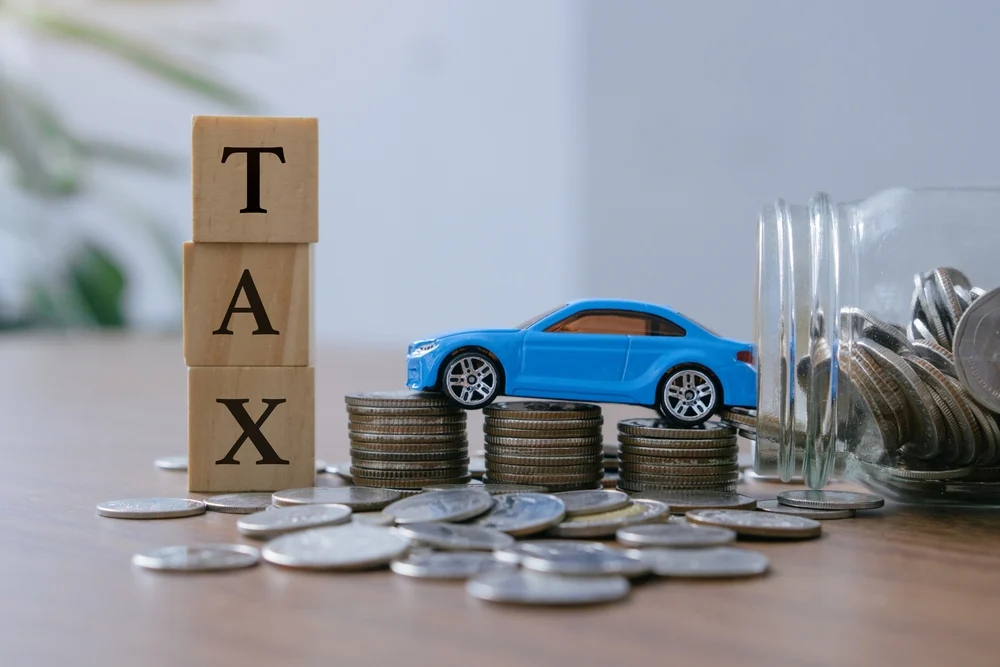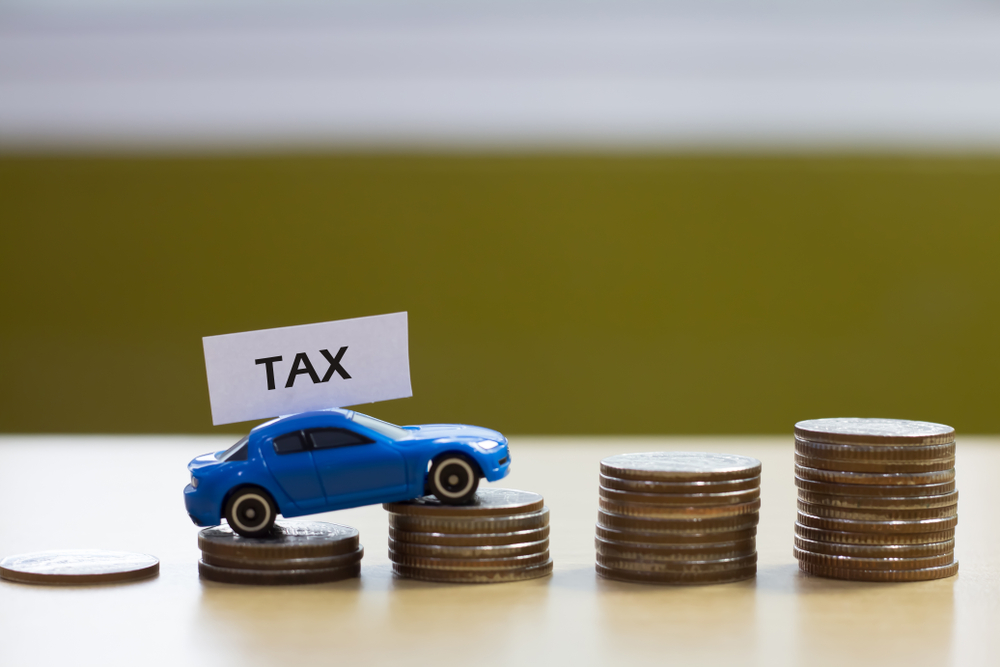When your car tax runs out today, it’s vital to know the rules to stay on the right side of the law. Driving without valid car tax can result in penalties and legal complications. If your car tax has expired, it’s advisable to refrain from driving until you’ve successfully renewed it.
Ensure to check the expiration date on your car tax and take immediate action if it has lapsed. The renewal process can usually be completed online or at a local post office.
By staying informed and promptly addressing the situation, you not only adhere to legal requirements but also maintain a hassle-free driving experience.
What Happens When Your Car Tax Runs Out Today?

If you forget to renew your car tax, there are serious consequences. First off, you might have to pay more money in fines the longer you wait. These fines can put a strain on your wallet. But it’s not just about money – not renewing your tax can lead to legal trouble.
The authorities could take action, like giving you more fines or even taking away your car. Plus, your insurance coverage might be at risk, making things tricky if you get into an accident.
To avoid all this, it’s crucial to renew your car tax on time and keep everything legal and stress-free on the road.
Can You Drive When Car Tax Expires?
When your car tax expires, it’s like a red flag in the world of driving. The general rule is pretty straightforward – you shouldn’t drive your car on public roads until you renew that tax. It’s a way to make sure everyone chips in for the upkeep of the roads and other services.
Now, there’s usually no wiggle room, but sometimes life throws curveballs. There might be exceptions or special circumstances.
For example, if you’re in the middle of renewing your car tax and have the paperwork to prove it, there might be a little grace period.
But here’s the key: these exceptions can vary, and the rules might differ depending on where you are.
So, it’s important to check with your local transportation authorities. Being in the know about these rules ensures you handle the situation right, avoiding any unnecessary headaches on the road.
What are the Steps to Take When Your Car Tax Runs Out Today?
When you find yourself facing an expired car tax situation, it’s essential to act swiftly and understand the detailed steps involved. Here’s a comprehensive guide to help you navigate this process effectively
Check the Expiration Date
Start by checking the expiration date of your car tax. Knowing when it expired is crucial information to gauge the urgency of the situation.
Avoid Driving
Once your car tax has expired, it’s strongly recommended to refrain from driving until you successfully renew it. Driving without a valid tax can result in fines and legal complications.
Renew Your Car Tax
The most critical step is to renew your car tax promptly. This can typically be done through various channels, such as online platforms or local post offices. Make sure you have all the necessary documents, including your vehicle registration and insurance details.
Address Fines
If you’ve incurred fines due to the expired tax, address them promptly. Ignoring fines can lead to additional complications, so it’s crucial to settle them as part of the renewal process.
Comply with Regulations
During the renewal process, adhere to all regulations. Follow the specific guidelines provided by your local transportation authorities to avoid any errors or delays.
Keep Documentation Handy
While driving with an expired tax is generally discouraged, if you’re in the process of renewal, keep relevant documents with you in the vehicle. This may include proof of renewal and payment.
Stay Informed
Regularly check for updates on regulations and renewal procedures. Understanding the current rules helps you navigate the process smoothly and ensures you’re up-to-date with any changes.
Why You Shouldn’t Risk Driving Without a Valid Car Tax?

Driving without valid car tax poses significant risks that go beyond mere inconvenience.
Legal Troubles
When you drive without valid car tax, you’re breaking the law. This can result in fines, legal action, or even the confiscation of your vehicle. The consequences become more severe the longer you ignore the issue.
Financial Implications
Fines for driving without valid tax can accumulate quickly, adding financial stress. Settling these fines, along with potential legal fees, becomes an unexpected expense that could strain your budget.
Impact on Insurance
Driving without valid tax can affect your insurance coverage. In the event of an accident, insurance companies may dispute claims or even reject coverage altogether, leaving you personally responsible for damages and liabilities.
Vehicle Safety
Valid car tax is often linked to roadworthiness checks. Ignoring tax renewal may indicate neglect of overall vehicle maintenance. This negligence can compromise your vehicle’s safety and increase the risk of breakdowns or accidents.
Complications During Checks
Law enforcement routinely checks for valid tax discs. If you’re caught without one, it could lead to immediate penalties, vehicle impoundment, or being prohibited from driving until the matter is resolved.
Long-Term Consequences
Driving without valid tax can have lasting effects on your driving record and may impact your ability to secure insurance or loans in the future. It’s a risk that can have far-reaching consequences beyond the immediate situation.
FAQ
How do I renew my car tax if my MOT has expired?
Renewing your car tax is a separate process from your MOT. To renew tax, ensure your vehicle has a valid MOT, then visit the official government website or your local post office. Follow the prompts for tax renewal, providing necessary details and payment.
What’s the fastest car in the world?
The title of the world’s fastest car is dynamic and subject to updates. As of my last knowledge update in January 2022, the Bugatti Chiron Super Sport 300+ holds the record, reaching a top speed of 304 mph.
Is 1200 cc a good car?
The suitability of a 1200 cc car depends on individual preferences and needs. It’s considered adequate for daily commuting and can offer a good balance of fuel efficiency and performance.
How much horsepower is 1300cc?
The horsepower of a 1300cc engine can vary, but as a general estimate, it might range from approximately 60 to 100 horsepower, depending on factors such as design, technology, and tuning.
How many HP is a 1000cc engine?
The horsepower of a 1000cc engine can vary, typically ranging from 70 to 150 horsepower, depending on the specific design and purpose of the engine.
What is BHP in a car?
BHP stands for brake horsepower, a measurement of an engine’s power output before losses, such as friction, are considered. It represents the raw power generated by the engine.
How many cc is equal to 1 hp?
There’s no exact conversion of cc to horsepower because it depends on various factors. However, a common approximation is around 15-17 cc per horsepower for small engines.
How much fuel does a 1300cc consume per km?
Fuel consumption varies based on factors like driving conditions and the car’s efficiency. On average, a 1300cc car may consume around 12-16 km per liter of fuel.
How many HP is 999cc?
The horsepower of a 999cc engine can vary but is generally in the range of 60 to 120 horsepower, depending on factors like design and tuning.
Final thoughts
Knowing the rules about your car tax is crucial to staying legal and avoiding unnecessary hassles. If your car tax runs out, it’s best not to risk driving until you’ve renewed it. The consequences, like fines and legal troubles, can add up quickly. Plus, it may affect your insurance and even the safety of your vehicle.
By staying informed and taking prompt action, you ensure a smooth and trouble-free driving experience. So, if you ever find yourself in a situation where your car tax is expiring, remember – knowing the rules keeps you on the right side of the road and out of unnecessary trouble.

